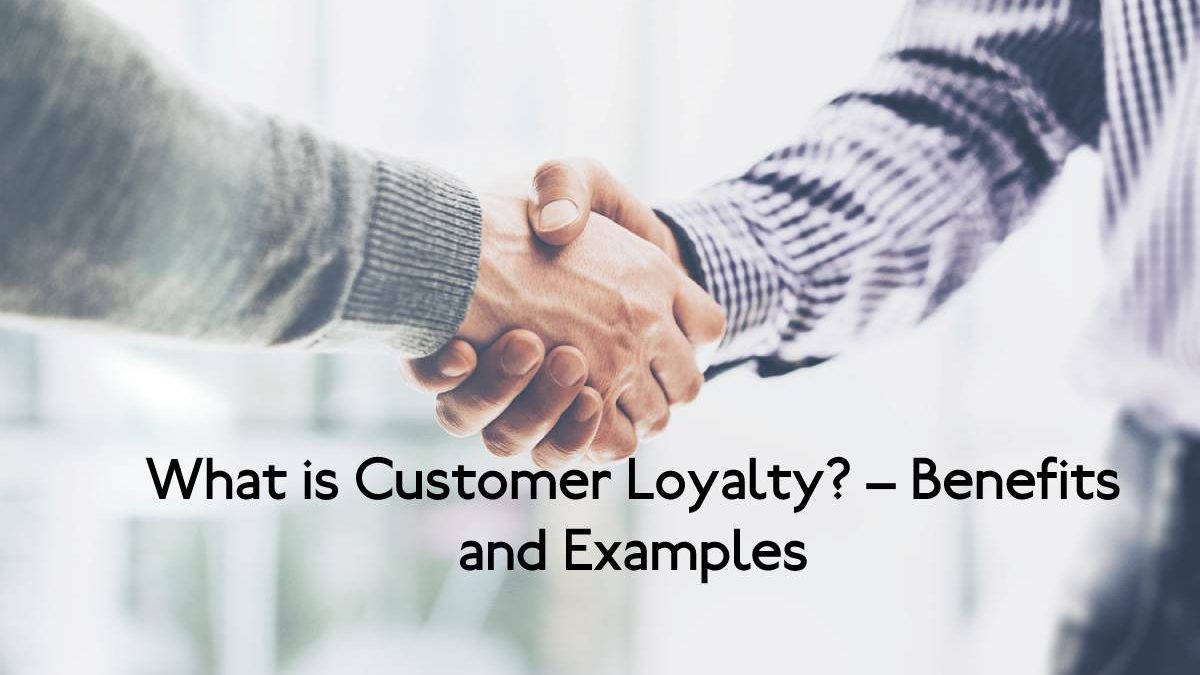The concept of customer loyalty itself is no secret. First of all, it is an indicator of the probability that a customer will repeat the experience after their first purchase. But the term also mentions the method as such. It conveys the strategies, gears, and actions that help people become repeat customers, whether they’re buying products or using a service on an ongoing basis.
A loyal customer is a company asset and an embodiment of the ideal customer. Finding more of these people and getting to know them better are essential steps to achieving recurring and constantly growing sales.
Table of Contents
Our Customer Satisfaction and Loyalty the Same Thing?

That is why, to begin with, we must clarify the confusion that generally occurs between the satisfaction and loyalty of the terms. They are often understood as synonyms when in fact, they are not.
Satisfaction
It is a punctual feeling related to an expectation of a product or a service. A satisfied customer finds what he is looking for and manages to solve his problem regardless of the link he generates with your company or brand.
Loyalty
It is more than a punctual feeling. It is a positive perception that goes beyond a purchase or the resolution of a problem. Loyalty is the indicator that your company or brand is associated with an experience and a philosophy of life for that client.
As you can see, there is a tremendous and subtle difference between satisfaction and loyalty. Let’s say that satisfaction is the previous step to loyalty; while the first is directly linked to the acquisition and use of a product, the second is more associated with the relationship between the company and the client
What are the Benefits of Having Loyal Customers?
It’s hard not to see loyalty as a good thing. After all, it is about customers buying more and better from you. However, it is essential to understand what a good loyalty package means.
This implies knowing the various benefits that it brings to a Digital Marketing plan and the profitability of your business.
Here is a list of the main ones
Sell More to Converted Customers
There is a vital indicator for online businesses, especially virtual stores, directly related to customer loyalty. This metric shows you the expected time of a person as a consumer and how much they spend through that period. Improving this KPI can maximize the return on each new consumer. We know how hard it is to become them, so why not make the most of this after converting a lead into a customer.
Reduce Marketing Costs
As a marketer, you are alert to the costs complex in attracting new leads. That work includes helping them learn about your brand, getting their attention, getting them to consider options, and convincing them to buy.
The Customer Acquisition Cost (CAC) is always higher when the purchase journey is longer. That is why you must make an effort for those nearby to create a new purchase.
Therefore, balancing generating leads and nurturing converted customers is the best strategy for lower CAC.
Earn Predictable Income
A loyal customer base always consumes something from your brand. For retailers, this is a competitive advantage. So instead of working solely for events to earn revenue on a specific date, leverage your customer loyalty to make your business profitable throughout the year. After all, predictable cash flow helps plan for a steady pace of expansion!
Building a Strong User Base
Most customers come and go, but the ones that stay form a core that gives stability to your brand. A loyal audience remains eager to share thoughts and data about their habits, expectations and experiences; knowing them better will teach you how to attract more people like them.
Be More Attractive
When a customer gives you his loyalty, it does not mean that he only wants to buy more, but that he wants to be part of the brand’s life, interacting with it, promoting it and participating in its initiatives.
The more extensive your loyal base, the more interaction you will get in campaigns and live experiences, as they participate, tag friends and talk about you. Thinking about what Digital Marketing means today, loyalty is not just about more sales. It is about improving branding awareness and online visibility.
Examples of Customer Loyalty
Amazon Prime
Your business may not remain as big as Amazon, but what they did with Prime is a great example to follow, no matter the size of the audience of your business.
Amazon Prime is a subscription-based loyalty program that focuses on delivering real customer benefits:
- free shipping;
- Special discounts;
- music and video streaming;
- games;
- ebooks;
- among others.
But the most exciting object to note here is Prime Day. A unique, annual event focused on your loyal customer base created a recurring date just for the brand, increasing conversions that will last into the following year.
The North Face
The North Face’s VIPeak program is an excellent example of how knowing your audience and working with that knowledge always pays off.
North Face also has a rewards system based on points, as in the example above. However, as a brand focused on outdoor apparel, they also promote special events and award points for those who attend them, such as a healthy walk.
It is the perfect combination of engagement and loyalty.
Conclusion
Customer loyalty measures how likely a customer is to do business with a company or brand again. It results from consumer satisfaction, progressive customer experiences, and the general value of the goods or facilities a customer receives from a company.


